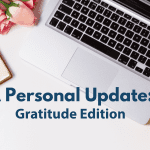Intimacy is an important source of comfort and provides predictability in an uncertain world. It’s important for you keep your marriage in perspective. Many people avoid being close to their partner and lose out on the rewards of intimacy such as feeling safe and connected during times of turmoil. Why waste time fearing intimacy? By being vulnerable, you can achieve intimacy with our partner and stand a better chance of achieving long-lasting love.

On the long list of factors that can doom a relationship, the fear of intimacy is perhaps the most difficult to decode and overcome. It’s clear that a relationship works when both partners allow themselves to be vulnerable and lay bare their true personalities — those hopes, hang ups, and fears that are easier to keep hidden.
The first step in becoming more intimate with your partner is self-awareness. Examine your fears and behaviors that sabotage your ability to get close to your partner. For instance, Caitlin, tends to get so preoccupied with her two young children that when her husband Evan arrives home, she turns away from him (talking to the kids or preparing their meal), rather than turning towards him by greeting him and asking about his day.
Christine put it like this: “After Evan pointed this out to me in our counseling session, I realized that it’s my way of avoiding intimacy. My parents always argued a lot and divorced when I was sixteen, so I never learned the skills to be close. I’m working on sharing my feelings with Evan and tuning into his needs more, even for short periods rather than ignoring him.”
Evan reflects: “I’m feeling closer to Caitlin now that she focuses more on me, the kids can play in our backyard for a little while and dinner can wait a few minutes. It feels good to hug and touch base with each other.”
Experiencing emotional intimacy with a partner is one of the most satisfying experiences in life. For many couples, it’s almost as if they’re on a tightrope and balancing feelings of security with tension. This can cause them to experience anxiety when they are off balance but create a sense of calm when they are in harmony with each other. In Hold Me Tight, Dr. Johnson explains: “To stay on the rope we must shift with each other’s moves, respond with each other’s emotions. As we connect, we balance each other. We’re in emotional equilibrium.”
This may be especially true of couples who don’t share a long history of responding to bids for connection and learning to trust each other. For instance, Caitlin and Evan, are beginning to understand the importance of sharing emotions and affection with one another. In the past, they would often bicker over small things and question their intentions and love for each other. In other words, they assumed the worst of each other and lacked trust in their ability to connect in a positive way and find happiness.
Do you ever find yourself avoiding intimacy in any of these ways?
- Questioning your partner’s intentions and asking for affirmation of their feelings toward you frequently?
- Complaining that you don’t get enough attention in hopes that he/she will change?
- Pursuing a partner who is a distant even though you know deep down inside that he/she will never meet your emotional needs for connection?
- Setting up the expectation that he or she has to prove their love by engaging in specific behaviors – such as buying you gifts or calling you twice a day?
- Picking an argument or creating conflict because you blow little things out of proportion? Ask Yourself: Is it the end of the world that your partner didn’t return your phone call right away? After all, he/she may have at an important work related call or a deadline to meet. Assuming the best of your partner when they are usually trustworthy with build intimacy.
It is possible to be close to others without losing part of yourself. Author Stephanie Dowrick writes, “At the heart of many of our difficulties is a lack of conscious understanding that each of us needs closeness with others, and also a knowledgeable, nurturing relationship with our own self. Each of us needs to find a delicate, shifting balance between dependence and independence, between being open to others and taking care of ourselves.”













